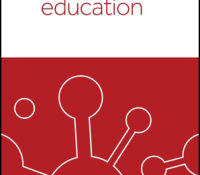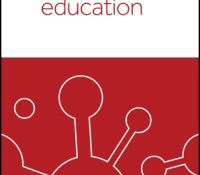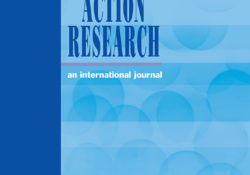
tandfonline.com har udgivet en rapport under søgningen “Teacher Education Mathematics”: ABSTRACT ABSTRACT Research on grit indicates that perseverance positively predicts academic achievement. Yet, the mechanisms through which perseverance might lead to academic success remain less explored, particularly in cross-cultural research. The current study investigated such mechanisms by examining possible mediating effects of students’ use of self-regulated learning strategies (control, memorisation, and elaboration) on the predictive relation of students’ perseverance on their academic achievement, in students from East Asian and Anglo-Saxon English speaking Western countries. The sample came from the OECD PISA study and included 24,352 population-representative 15-year-old students from Hong Kong, the Republic of Korea, Australia, New Zealand, Scotland, and the US. Results revealed that perseverance had a more positive association with achievement in East Asian cultures than Western cultures.… Continue Reading →
Like this:
Like Loading...
tandfonline.com har udgivet en rapport under søgningen “Teacher Education Mathematics”: Abstract Formulae display:?Mathematical formulae have been encoded as MathML and are displayed in this HTML version using MathJax in order to improve their display. Uncheck the box to turn MathJax off. This feature requires Javascript. Click on a formula to zoom. Abstract Self-regulated learning (SRL) strategies have gained a great prominence in second language reading comprehension; however, to have a comprehensive picture of their efficacy, this study investigated the significant relationships among SRL components, reading comprehension and reading problem solving. Moreover, it examined the effects of SRL instruction on SRL strategies, reading comprehension, problem solving and the strength of the relationships among these variables. To this end, 183 Iranian English as a foreign language (EFL) learners participated in two phases… Continue Reading →
Like this:
Like Loading...

tandfonline.com har udgivet en rapport under søgningen “Teacher Education Mathematics”: Abstract Abstract This study aimed to investigate the impact of a flipped classroom on the self-regulated learning (SRL) and academic achievement of seventh-grade junior high school students. A quantitative approach was used to compare the traditional and flipped classroom approaches. The data were obtained using the Motivated Strategies for Learning Questionnaire (MSLQ) along with students achievement scores. Cognitive learning strategies and metacognitive self-regulation strategies were investigated as indicators of students SRL strategies. The results indicated that 64 seventh-grade participants demonstrated a good-to-high level of practicing SRL within the flipped classroom environment. Moreover, the student participants appeared to self-regulate their metacognitive learning strategies in the flipped classroom environment more than those in the traditional learning environment. In terms of their academic… Continue Reading →
Like this:
Like Loading...
tandfonline.com har udgivet en rapport under søgningen “Teacher Education Mathematics”: ABSTRACT ABSTRACT The aim of the present study is to advocate the use of a participatory action research programme, the Formative Scaffolding Programme (FSP), in mathematics. The FSP’s main structure is presented as well as an implementation of a class intervention, with the aim of exploring the FSP test cycle’s virtues in a social science class in a Swedish upper-secondary school. The motivations for the FSP’s development were to enhance students’ awareness of their mathematical proficiency, alter the level and strength of their self-efficacy, foster self-regulated learning (SRL), reduce and prevent mathematics-related anxiety, and visualise the learning process in mathematics. The primary findings of the study were there was a resemblance between the FSP setting and SRL phases, and that participation… Continue Reading →
Like this:
Like Loading...
tandfonline.com har udgivet en rapport under søgningen “Teacher Education Mathematics”: Abstract Abstract In this paper, we examine the benefits of employing an inverted or “flipped” class design in a Transition-to-Proof course for second-year mathematics majors. The issues concomitant with such courses, particularly student acquisition of “sociomathematical norms” and self-regulated learning strategies, are discussed along with ways that the inverted classroom can address these issues. Finally, results from the redesign of a Transition-to-Poof class at the author’s university are given and discussed. Link til kilde
Like this:
Like Loading...




